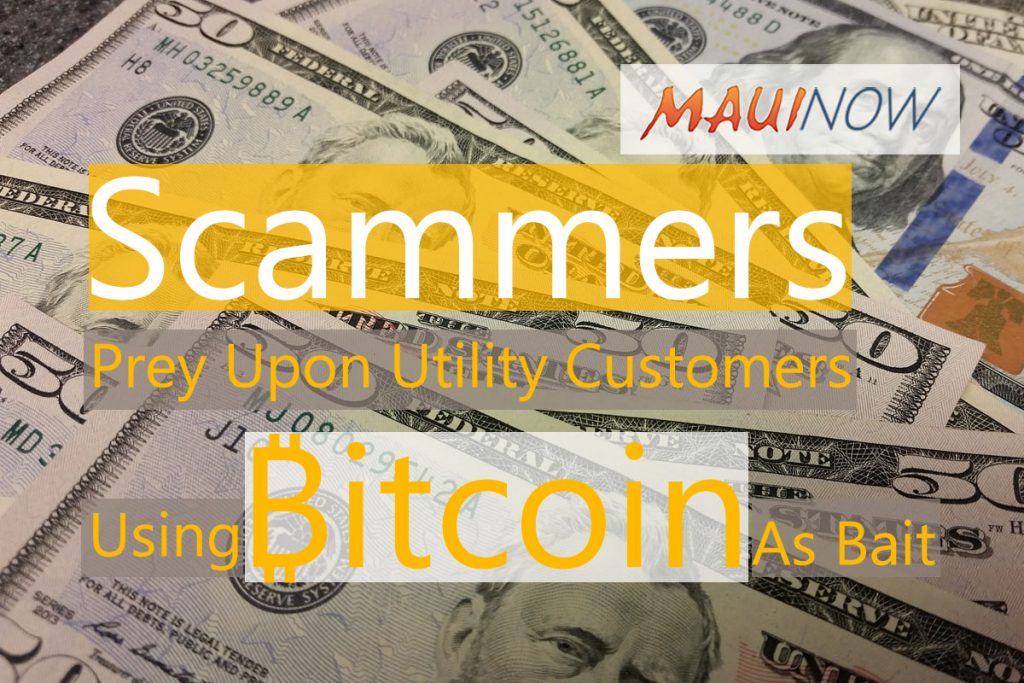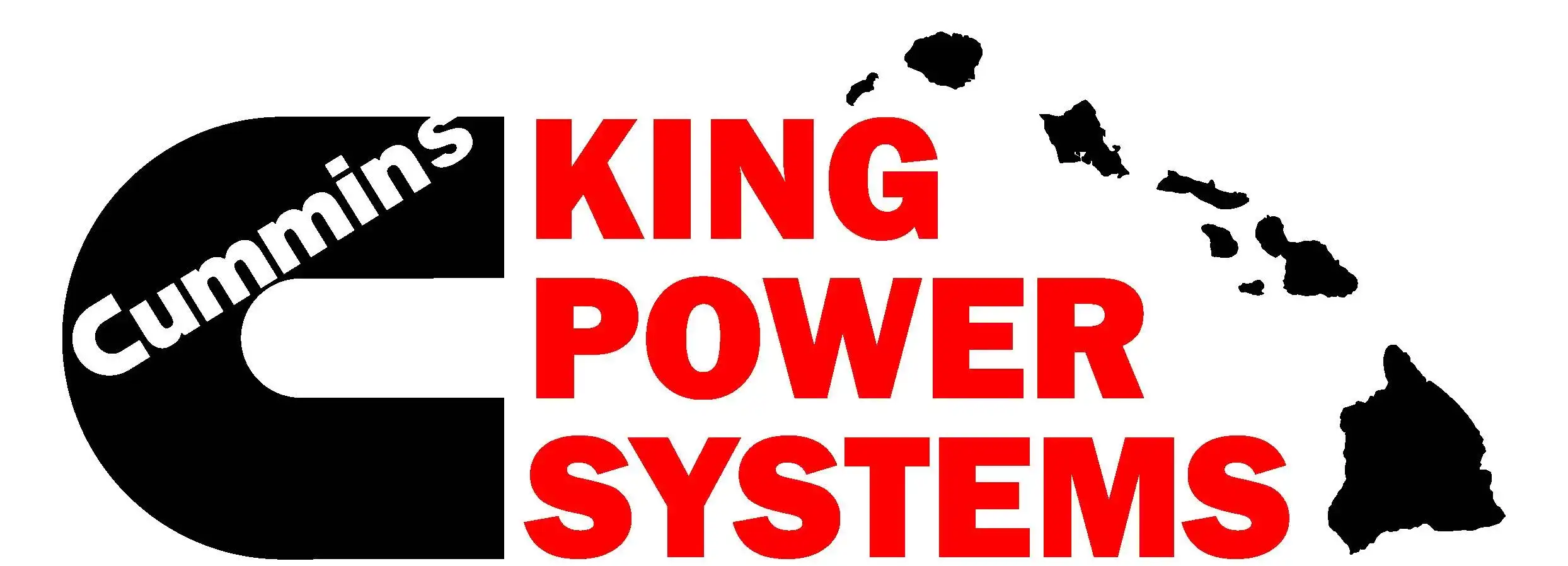Bitcoin Scam Targets Electric Customers in Hawai‘i

Maui Now graphic.
Scammers are targeting customers of Hawaiian Electric, Maui Electric and Hawai’i Electric Light, demanding payments in the digital currency known as bitcoin with threats of discontinuing electric services, according to company executives.
The Hawaiian Electric Companies urge their customers that as all other US utilities, the companies do not accept bitcoin as a form of payment. According to Utilities United Against Scams, earlier this month a rising surge of bitcoin scammers began targeting utility customers on the US mainland, demanding bitcoin to pay supposedly “past due” bills.
On O’ahu, three businesses have reported being scammed, paying hundreds of dollars at bitcoin machines after callers threatened discontinuation of services. The callers gave customers a callback number with automated prompts like those used by Hawaiian Electric companies. Scammers are also using email to target Hawaiian Electric customers. Company executives say the customers were also sent emails with disconnection notices on letterhead with an outdated Hawaiian Electric logo. The notice provided a QC code to scan for payment at a bitcoin machine, converting dollars into the digital currency.
Maui Electric offers the following tips to avoid being scammed:
- Any calls demanding immediate payment from Hawaiian Electric Companies over the phone or via prepaid debit cards or bitcoin are scams.
- Callers asking to meet for payment or providing directions to a bitcoin machine are scammers.
- Callers who make threats of discontinuing services unless payments are made immediately are scammers.
“This is simply a new twist on an old scam but our same advice applies: just hang up,” said Jim Alberts, senior vice president for customer services of the Hawaiian Electric Companies. “Whether it’s bitcoin, gift cards or money orders, our companies aren’t going to threaten you or have you running around town to meet unorthodox payment demands.”
As suggested, customers are urged to simply hang up if they receive such a call, then dial the customer service line printed on their monthly electric bills or the company’s website.










